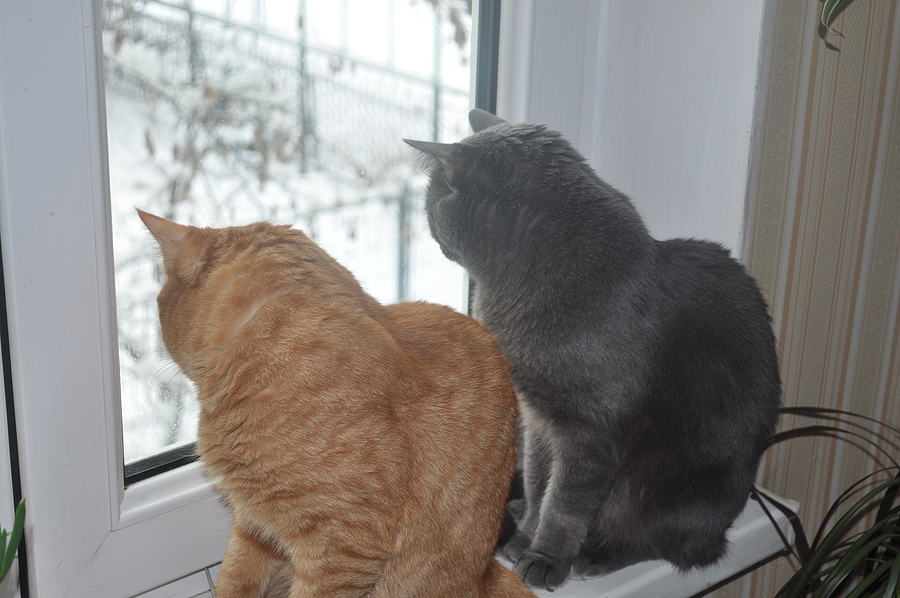Your indoor cat spots a cat outside a window, and suddenly turns on a housemate cat or human. What’s going on? Here’s what I told a reader.
Q: Why does my cat attack me when he sees a cat outdoors?
A: If you’ve ever had a bad day at the office and then come home and snapped at your significant other, you have some idea of how your cat feels when he or she sees an unknown cat trespassing in your yard.
Cats get frustrated when they see an invading feline in their territory, and they may take it out on you or another pet or person, a behavior known as redirected aggression. It can be downright scary if you’re on the receiving end when your cat lashes out. It can be frustrating for you in other ways as well. Some cats accompany redirected aggression with urine spraying in an attempt to let that other cat know he or she is trespassing.
Free-roaming cats work out boundary disputes through scent (urine spraying), sight (claw marks on trees) and sometimes outright violence. Cats who live indoors don’t have opportunities to mark or defend their territory from cats passing through.
You don’t have to let your cat outdoors, though, to help him protect his patch of earth. A motion-detection sprinkler may send stray cats scurrying when they cross onto your cat’s property. And if there’s a particular window that offers your cat the perfect vantage point for spotting feline marauders, try putting up a barrier, whether that’s blinds you can close or a screen you can place in front of the window. You can even go so far as to close the door to that room and provide your cat with a perch near another window or door where he won’t see other cats go by.
Products such as Feliway that mimic calming feline pheromones may also help to prevent your cat from venting his frustration on your skin.
There’s more – including tips on helping pets adjust to a move – in Pet Connection, the weekly nationally syndicated pet feature I co-write with Kim Campbell Thornton and my daughter, trainer Mikkel Becker.


